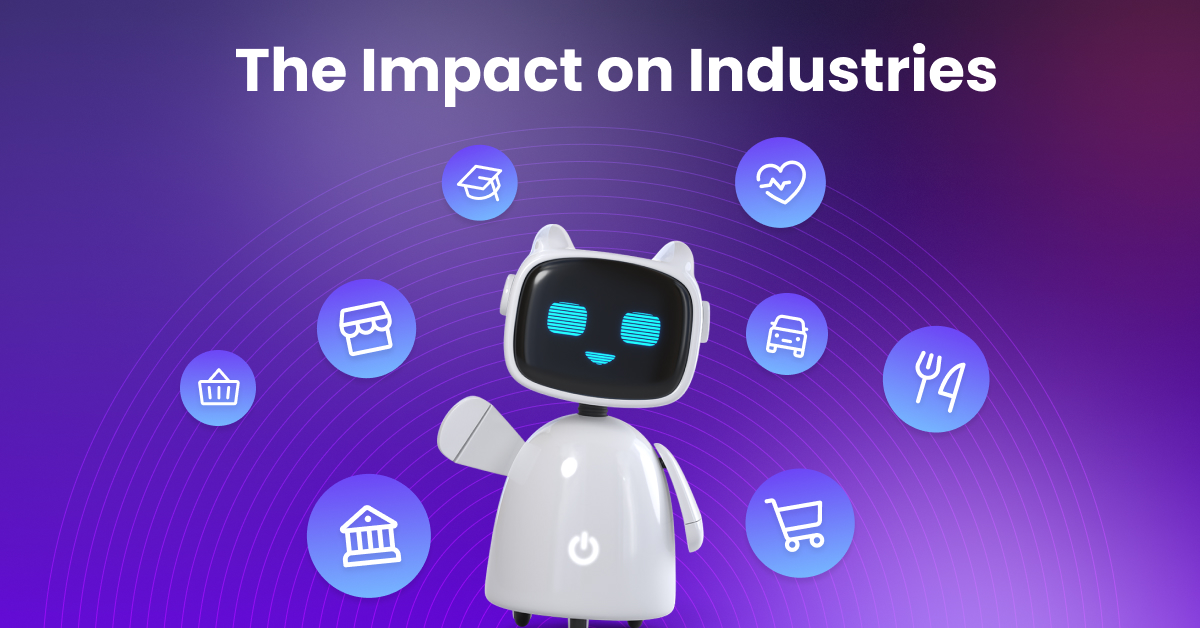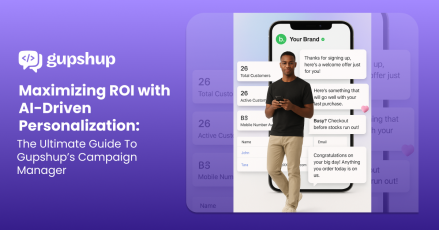How Are Conversational Chatbots Revolutionizing CX Across Industries In Nigeria?

In Nigeria, conversational chatbots are becoming increasingly significant amid the country’s digital transformation and rapid adoption of AI technologies.
These chatbots are capable of understanding context, mimicking natural language, and even exhibiting a touch of personality, making interactions feel more personalized and authentic. This is key in enhancing the conversational experience (CX) with customers.
This is a significant leap from the early days of digital assistants that often left users frustrated due to their limited capabilities.
A majority of online shoppers now prefer interacting with chatbots over waiting for human agents. Their reason for doing so is “immediate responses” from AI chatbots. Almost nine out of ten customers have engaged with a chatbot, with most reporting positive experiences. This reflects a broader trend towards automation in customer service. Thus, chatbots are expected to handle a significant proportion of customer interactions in the near future, potentially saving businesses billions annually.
For Nigeria, the embrace of conversational chatbots comes at a crucial time. The country’s digital landscape is evolving rapidly, with businesses seeking innovative ways to improve CX.
By integrating AI-driven chatbots, industries such as F&B, Travel & Hospitality, and Healthcare can enhance CX, streamline their operations, and reduce overhead costs.
Let’s get into it to understand how AI chatbots can change the face of most industries across Nigeria.
In Nigeria, businesses are increasingly using technology to improve customer service. This includes chatbots, social media, mobile apps, and data analytics to offer faster, personalized service.
However, challenges such as unreliable internet, insufficient infrastructure, and a lack of tech skills among the population make it difficult to implement these technologies fully.
Economic factors also play a role. The anticipated GDP growth of 3.1% in 2024, driven by policy reforms and efforts to improve oil production, suggests a cautiously optimistic investment climate. Yet, infrastructural gaps, especially in security and technology, and a projected increase in poverty to 38.8% underline the complexity of delivering advanced customer experiences.
These economic trends highlight the need for businesses to adapt to both technological advancements and economic realities to enhance customer service.
Furthermore, aligning business strategies with government policies aimed at sustainable growth is crucial for improving customer experience in the face of Nigeria’s digital transformation.
To succeed, Nigerian businesses must navigate technological advancements seamlessly, ensuring they provide valuable, customer-focused services in a competitive market.
Now, let’s examine how the introduction and adoption of AI have impacted the CX across different industries in Nigeria.
The Impact on Industries
In Nigeria, conversational chatbots have taken over various sectors. They are significantly enhancing conversational experience with their capability to provide immediate, 24/7 responses to a wide range of queries and tasks.
Here’s a deeper look into how they’re impacting the banking, retail, and telecommunications sectors:
Banking
The banking sector in Nigeria is completely changing with the adoption of chatbots. Several banks have witnessed these changes very closely.
AI chatbots serve multiple functions, from facilitating transactions like fund transfers and bill payments to providing account information and assisting with loan applications.
For instance, a major bank in Nigeria introduced a chatbot, an intelligent virtual assistant on WhatsApp, that offers services such as bill payments, fund transfers, and account statements. These innovations not only automate mundane tasks but also significantly reduce the workload on bank staff, allowing them to focus on more complex customer needs.
With the help of Gupshup’s WhatsApp Bots, other banks in Nigeria can also automate their conversational experience, ultimately improving the conversational experience and gaining more customers.
Retail
With Nigeria’s population projected to become the world’s third-most populous by 2050, the retail sector stands at the brink of a transformative era.
Retailers can leverage chatbots to manage the surging consumer demand efficiently. They can provide personalized shopping experiences through product inquiries, order tracking, and customized recommendations.
This technology-driven approach will be crucial in catering to a diverse and growing customer base, ensuring retail businesses not only meet but exceed the evolving expectations of Nigeria’s dynamic demographic landscape.
Addressing Industry-Specific Challenges with Chatbots
The integration of chatbots across various sectors signifies a strategic approach to enriching customer interactions. Here’s how chatbots are revolutionizing customer experience:
Access to First-Party Customer Data in the Absence of Cookies
In Nigeria, as businesses adapt to a digital landscape that’s moving away from third-party cookies, chatbots emerge as key tools for direct customer engagement. This shift enables Nigerian companies to collect first-party data efficiently, ensuring data reliability and compliance with privacy laws.
By leveraging chatbots, businesses gain insights into customer preferences directly from the source, enhancing the conversational experience and having a deeper understanding of customer behavior without compromising privacy. This approach aids in personalizing services and also builds trust.
Better Engagement
Personalized interactions contribute to heightened engagement levels. Chatbots can utilize this first-party data to tailor conversations and recommendations, resonating more deeply with customers. This potentially enhances brand loyalty and conversion rates, which is essential in a competitive market like Nigeria’s.
Faster Resolution
Chatbots provide immediate answers to common queries, significantly reducing or eliminating wait times associated with traditional customer support channels like call centers. This efficiency is crucial for customer satisfaction and helps Nigerian businesses streamline their operations, making them more agile and responsive.
24/7 Availability
Nigeria’s bustling economy never sleeps, and neither do customer inquiries. With chatbots, businesses can offer continuous support, ensuring customers have access to assistance at any time. This around-the-clock availability addresses the modern consumer’s demand for immediate and convenient service, a critical factor in customer retention and satisfaction.
Multilingual Support
Nigeria’s linguistic diversity, with over 500 languages spoken, presents a unique challenge in customer service. Chatbots, like Gupshup’s, programmed to support multiple languages, can significantly enhance customer experience, allowing users to interact in their preferred language. This inclusivity is invaluable in the Nigerian context, making services accessible to a broader audience and fostering a more welcoming customer service environment.
How Can Gupshup Help?
Among all these AI-driven advancements, Gupshup emerges as a powerful AI platform that provides services to meet the unique needs of businesses across these sectors.
With its advanced AI capabilities, Gupshup enables businesses to easily handle complex queries, engage in natural conversations, and provide personalized customer experiences.
For banks, retailers, telecommunications, and other sectors in Nigeria, Gupshup’s solutions can help automate customer service tasks, enhance efficiency, and build deeper customer relationships.
The platform’s ease of use and the ability to integrate with various digital channels make it a valuable tool for businesses looking to leverage the power of conversational AI to improve their customer service.
The Future of CX with AI in Nigeria
The future of CX in Nigeria, guided by the advancements in AI and chatbots, introduces a promising new era of digital interaction.
With the integration of AI, particularly through chatbots that are becoming increasingly human-like and intuitive, businesses have the opportunity to redefine customer engagement. The expected growth in the chatbot market will result in a substantial valuation, which displays the important role these digital assistants will play across various sectors.
This trend will create a more harmonious and intuitive customer experience that mirrors human interaction. The incorporation of voice technology and multichannel integration further amplifies chatbots’ potential to offer seamless and convenient services to customers.
For businesses in Nigeria to remain competitive and relevant in this changing landscape, adopting AI and chatbot technologies is essential. Striking the right balance between AI-driven efficiency and the irreplaceable value of human empathy will be key strategies moving forward.
As we look towards the future, the integration of AI in customer experience strategies offers a pathway to not only meet but exceed the evolving expectations of consumers.





